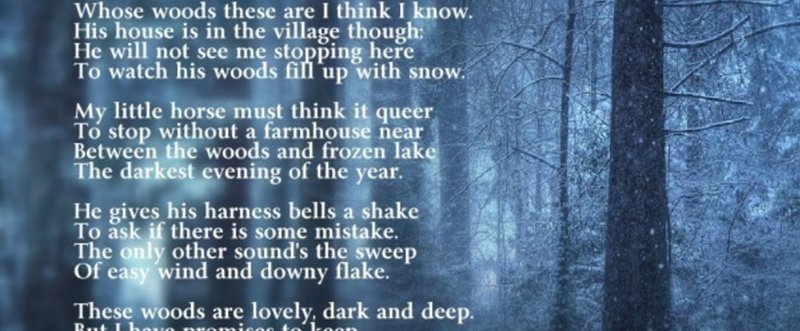
フロストの冬至の詩
Frostの2番人気の'Stopping by Woods on a Snowy Evening'は冬至の詩。「1年で最も暗い夕」は降り積もる雪の白さと矛盾する。lovely, dark and deepの原稿と、流布版のlovely, dark, and deepの違いの大きさたるや。
A, B, and CはOxford commaとも呼ぶが、そのような編集上の校訂は不適当だとする論者も多い。Poirierなどが典型だ。彼らの主張では"lovely, [i.e.] dark and deep"となる。これに対してdarkの後にコンマを置くと3つの並列になる。
dark, と校訂したのはLathem版なのだが、もしやと閃きLibrary of America版を見てみたらdarkの後にコンマがない。やっと詩人が望んだ形が定本になったのかもしれない。dark and deepの頭韻の結びつきもこれで生きる。森と雪と人と馬とが活きる。百論噴出の詩なのだけれど、コンマなしが味わい深く、なぜ冬至の森に語り手がこれほど惹きつけられたのかも納得できる。
Stopping by Woods on a Snowy Evening
Robert Frost
Whose woods these are I think I know.
His house is in the village though;
He will not see me stopping here
To watch his woods fill up with snow.
My little horse must think it queer
To stop without a farmhouse near
Between the woods and frozen lake
The darkest evening of the year.
He gives his harness bells a shake
To ask if there is some mistake.
The only other sound’s the sweep
Of easy wind and downy flake.
The woods are lovely, dark and deep,
But I have promises to keep,
And miles to go before I sleep,
And miles to go before I sleep.

この記事が気に入ったらサポートをしてみませんか?
